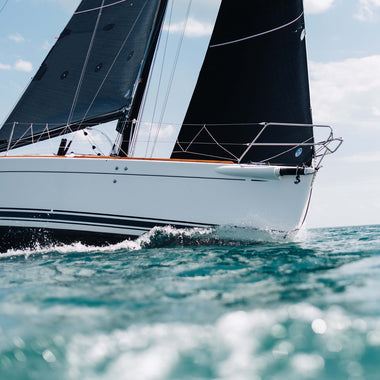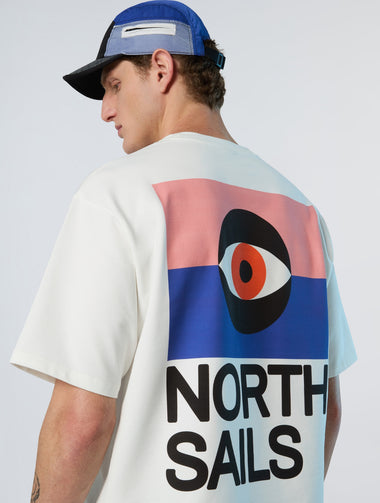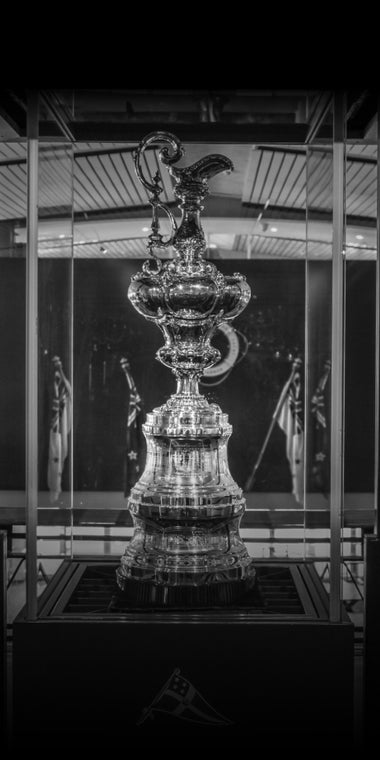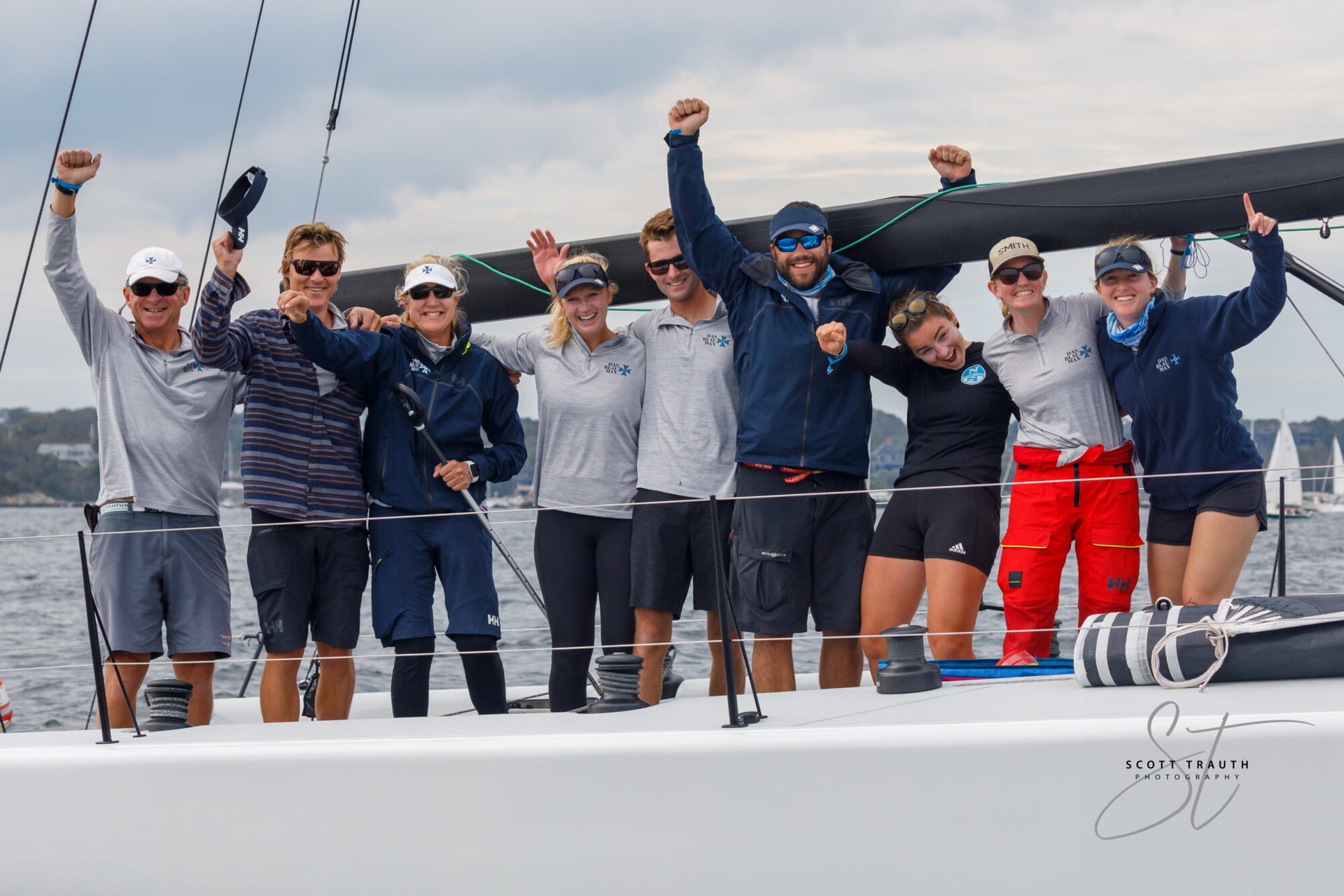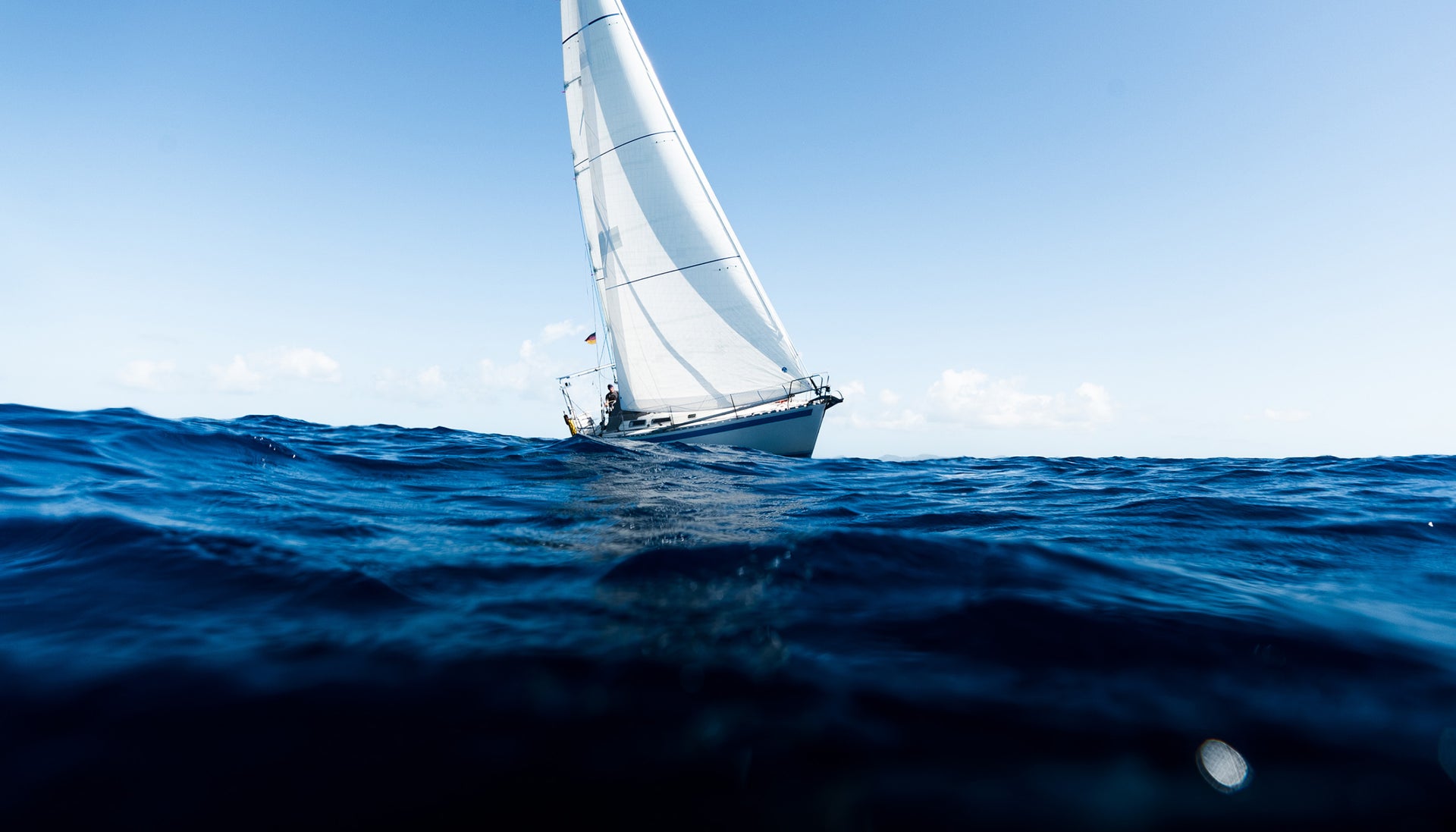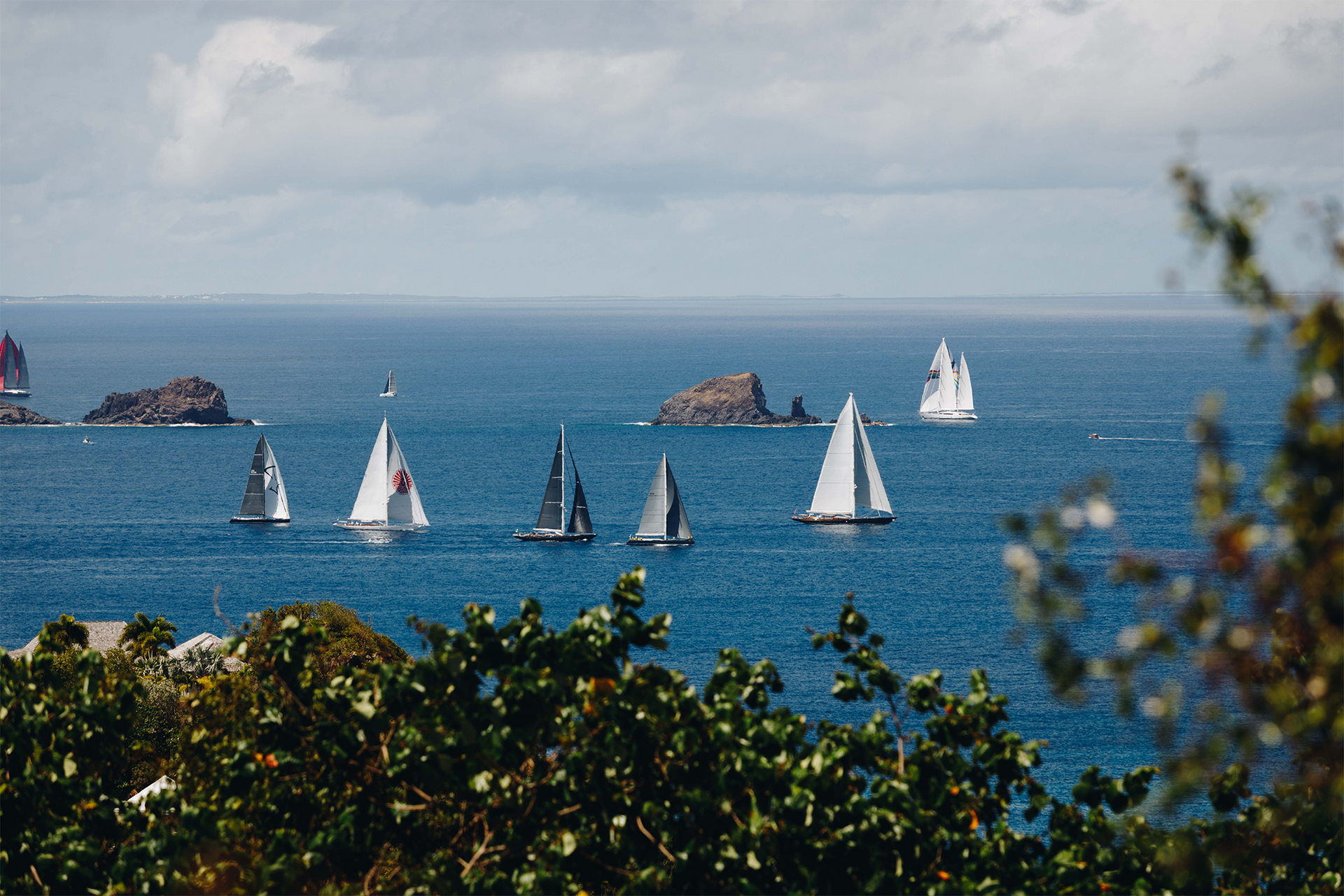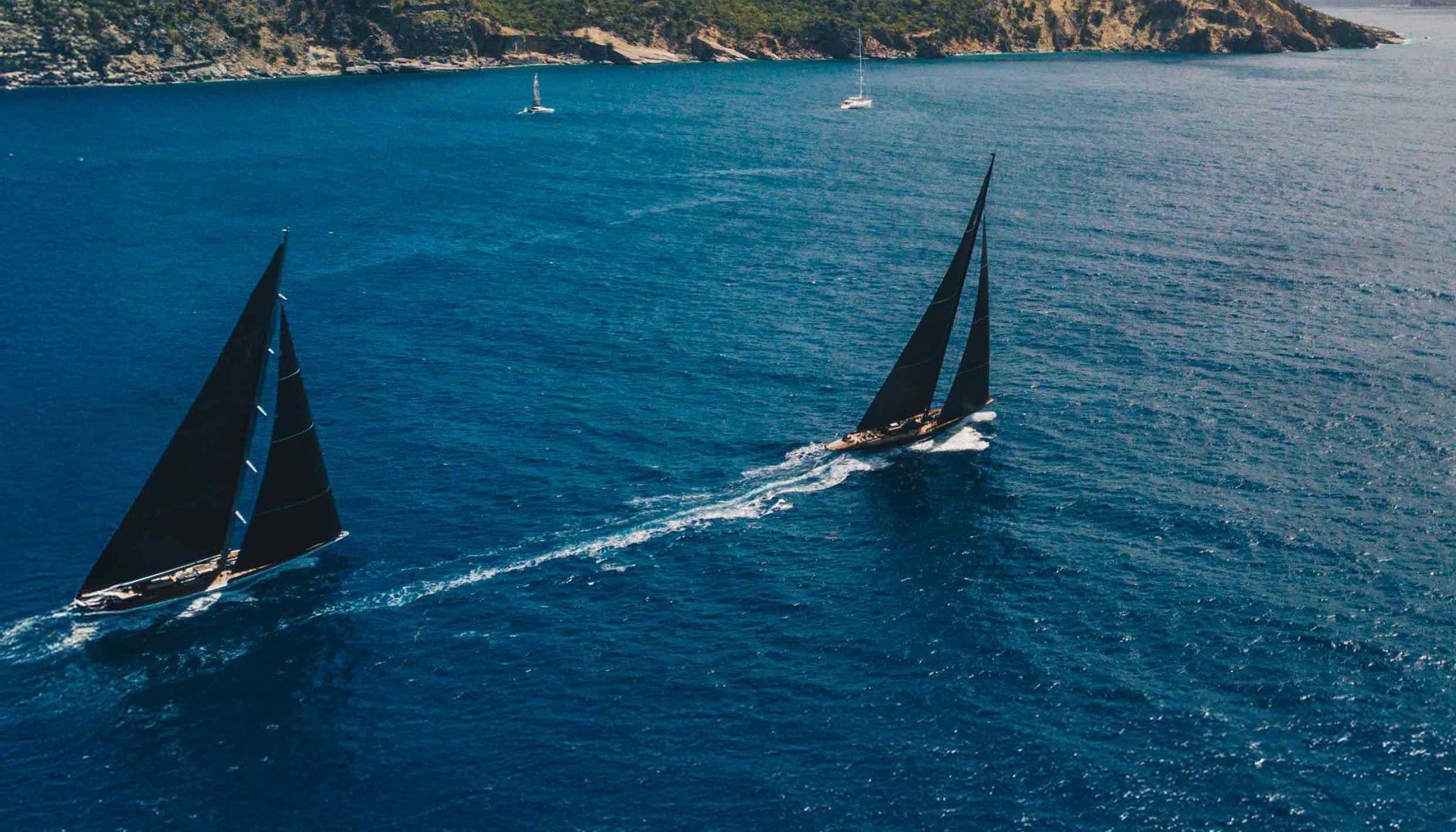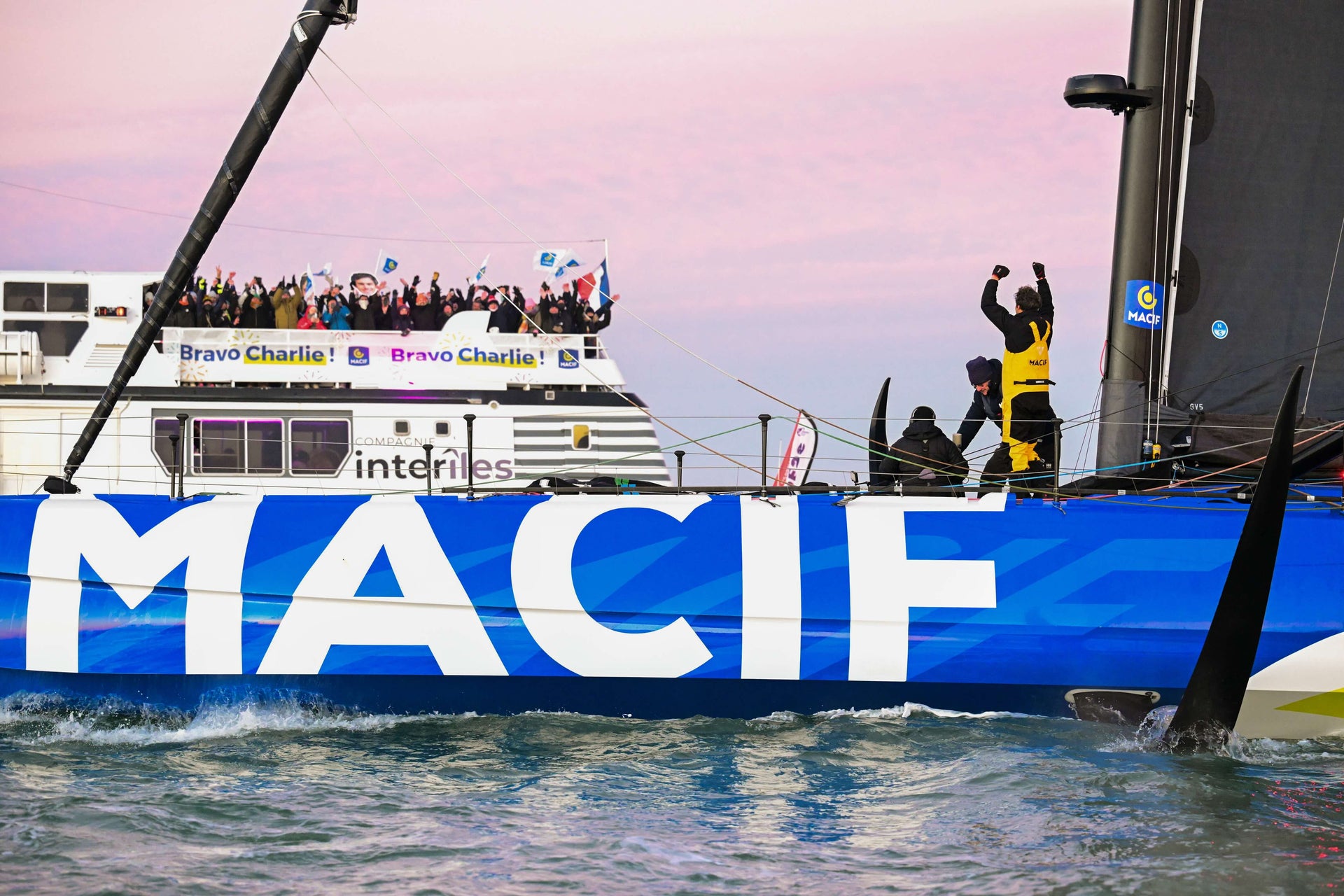THE SERTL FAMILY - IC37 NORTH AMERICAN CHAMPIONS
How The Sertl Family Went From The “Family Boat” to IC37 Continental Champions

The inaugural IC37 North American Championship took place October 1- 3, 2021, in Newport, Rhode Island, hosted by the New York Yacht Club. After 8 races across 3 days of sailing, team Sertl on Das Blau Max took home the North American title as an all-corinthian team with the entire Sertl family aboard. It wasn’t always smooth sailing for the Sertls, so we asked Katja (daughter, jib trimmer) to reflect on how the team put it all together for the season finale.
I have been sailing with my family since the summer of 1994. At the age of 5 months old, my parents raced the Rochester Yacht Club’s weekend J/24 racing series, and I was down below strapped to the mast in my car seat, both of them taking turns checking on me to make sure I was still smiling.
Fast forward 27 years, and the Sertl Family still races together. We’ve since upgraded to an IC37 and now we are North American champions.
In 2017, when the New York Yacht Club first announced the concept of building a fleet of IC37s for charter, my family jumped at the opportunity. It was an exciting chance for women, younger sailors, and Corinthian sailors to compete at a very high level, on an even playing field. From day one, we believed we could compete towards the top of the class as a Corinthian team. Success sailing together as a family in the Lightning and J/22 classes both nationally and internationally prepared us for a new challenge: figuring out a 37-foot, asymmetrical, high performance one-design keelboat.
During that first summer of racing our team learned a lot. Cory, my mom, drove; my brother, Nick, called tactics; my dad, Mark, trimmed the main and I bounced between pit, jib trimmer, and spinnaker trimmer. Our competitors referred to our team as “the family boat” (usually sarcastically) but, like every other team, we were learning how to work together. The class organized debriefs and coaching, which enabled informational discussions and debates on what was working and tips and tricks. This really helped all participating teams improve. In 2019, we were proud of our fifth in the inaugural IC37 National Championships, and even happier with our improvement over that first season.
We made the call to forego the IC37 Charter Program in 2020 due to the pandemic, but we were able to sail as a family on our Farr 30 and continue doing what we love – zooming around Narragansett Bay and spending quality time together on and off the water.

For the summer of 2021, we decided to rethink our team’s structure and better match our positions to our personal strengths. Nick is a great driver so he took over the helm. My dad is really good at making the boat go fast and shifting gears, so he stayed as the main trimmer. Mom called tactics (and made fantastic lunches for the team). I became the jib trimmer.
For the early half of the summer, we spent a lot of time figuring out which modes worked for the boat, and how to shift gears as conditions changed. We also worked on our team communication which allowed us to excel when it came to boat on boat tactics and boat handling.
With Marly Isler (runners), my mom, dad and brother in the back of the boat discussing tactics, and strategy, it was important that the boatspeed, modes and decisions were relayed forward to the remainder of the team. Jake Doyle, our offside jib/ spinnaker trimmer would often relay information about the mode that Nick needed so I could play the jib and work together with the back of the boat. The IC37 requires the jib trimmer to look at four different adjustments to control the leech profile, foot depth, and slot – the Athwartship Lead Position (a track for the jib cars), a vertical lead adjustment, jib halyard, and jib trim. All summer long, my dad, Jake, and I worked to learn about these controls and their effect on our boatspeed, and by North Americans, I really felt confident in my ability to make beneficial adjustments throughout each race.
Another example of team communication was seen on the approach to the windward mark. Hugh MacGillivray (mast) discussed where he saw pressure, and this helped my mom and Nick decide on their downwind game plan. This plan was then relayed forward again to inform the trimming and bow team which type of set would be needed to execute that game plan. Decisions the team faced consisted of whether the jib would stay up or down, the type of spinnaker set (bear away set, gybe set, bear away set with a quick gybe…). Hugh, Amina Brown (bow) and Marina Barzaghi (pit), were able to work together to get the spinnaker up and down smoothly, thanks to the thorough communication from the back of the boat.
The defining moment of the event was the moment when we all realized that we actually had a chance of winning the championship. For me, that moment came after winning two races on Saturday and having two major comebacks in the other two races. Everything and everyone was firing on all cylinders because we worked so hard to put everything together. Working together to make a boat go fast creates a completely different level of respect and understanding, with any team, but when your team is composed of your family it takes on a whole new level of meaning.
Find full IC37 North American Championships Results here.


